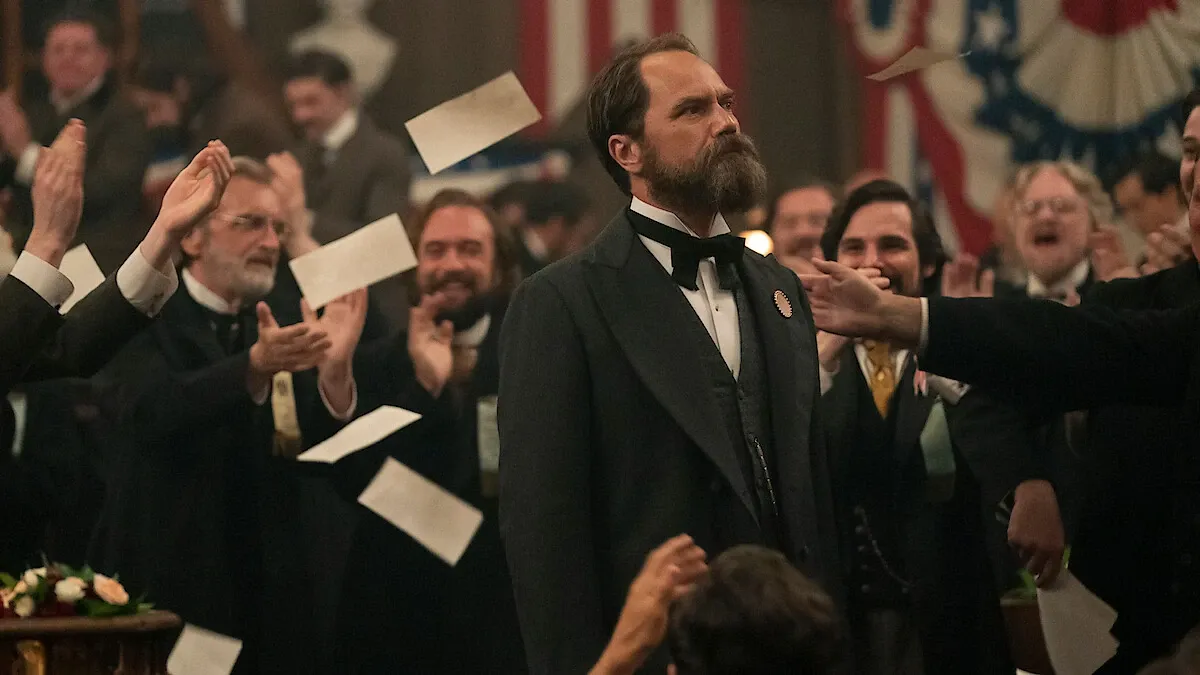★ | Trailer trashy
HILLBILLY ELEGY has its roots in the same soil as films like BOYZ IN THE HOOD and STAND BY ME. All are coming-of-age tales, where small-town lives become stifling, and the only choice is to escape before suffocating as well.
But unlike its counterparts, or something magical like the three-minute encapsulation of heartland angst in Springsteen’s The River, HILLBILLY ELEGY chooses cheap and tawdry melodrama over self-reflection.
Part of that concerns the source material — a trashy self-help guide from author J.D Vance — which became an instant bestseller and lightning rod for political hubbub in 2016. The same year Donald Trump became president.
Vance’s book struck a nerve of coal country trauma and anger: It made the claim that poor people in these areas are too dumb and ignorant to survive the hand they’re dealt. In effect, it both removed their agency while mythologizing their part in the grander scheme of things.
It wasn’t long before the Trump campaign and the GOP at large co-opted this thinking, both arguing that it was “economic uncertainty” (a fanciful rebranding of poverty), not racism, that propelled people to vote for an openly racist party.
As directed by Ron Howard, HILLBILLY ELEGY removes the politics from its narrative, instead choosing to focus entirely on the story’s family aspect. But they are inseparable aspects of the equation. When JD proudly proclaims himself a part of the hill people, it carries with it the weight of both their folk and sociopolitical history.
Yet Howard steadfastly ignores all this, and the film is both lesser and better for it. There’s no question that he is a consummate professional and a great filmmaker; that is apparent in how deftly he wrangles emotion from even the most maudling parts of the story. But this is an Appalachia completely bereft of minorities or any sign of a world beyond its forested borders. Everything exists in a hillbilly vacuum, and as such, the story can’t breathe or develop beyond a caricature.
This exclusion also makes the film feel exploitative, like a poverty safari. It allows us to gawk at the impoverished dead-end lives so that for a moment, there’s a feeling of fleeting sympathy, but nothing enough to desire change. These lapses come with the uncomfortable insinuation that ailments like drug addiction, alcoholism, and violence are self-inflicted, requiring only willpower to pull yourself up by your bootstraps.
“Family is all that matters,” growls Mamaw, the simmering matriarch of the family. But what does that mean for HILLBILLY ELEGY? It’s a re-telling of another person’s memories, and nobody in it comes off smelling like roses except for the leading man, whose biography this is.
So grandma swears, mom does drugs and beats her children, and the son, who is also the narrator, is the only one who grows as a person. The sister, played by the immaculate Haley Bennett, is left to wilt as a background ornament, despite possessing an equally involving story.
Glenn Close is an incredible actor, but she has the easiest part of the film. She plays the grumpy, magical grandmother, Mamaw, who spews insults as quickly as folksy wisdom. These include lines like “everyone is either a good terminator, bad terminator, or neutral,” which, if you think about it, means absolutely nothing. It’s just a trashy version of Paul Coelho’s penny wisdom, and that’s a low bar to cross.
The same goes for Amy Adams, a brilliant actor who is slumming it hard in a role that relies on makeup and gaudy sensationalism. It’s the kind of part actors flocked to from the 80s to the mid-aughts, dressing down to look “ugly,” only to be called brave for portraying something real people experience daily.
It’s an exercise in frustration, watching an impeccably talented cast wasted on material so stilted, insincere, and, frankly, trashy. HILBIILY ELEGY clings to every cliche in the book, including a painfully clumsy moment where JD calls his girlfriend in a panic because he doesn’t know which utensils to use at a fancy dinner or which wine to select. Because these are the dividing socioeconomic lines we find so hard to cross.
HILLBILLY ELEGY aims for THE RIVER and other classics of rural destinies but misses the mark because it lacks the desire to make a statement about anything. Howard can’t help but romanticize the past — even when it’s violent and traumatic — because romanticism is in his DNA as a filmmaker.
The result is a distasteful and expensive poverty safari, where we can look at the less fortunate from a distance for a short while, before driving off and forgetting about them entirely.












